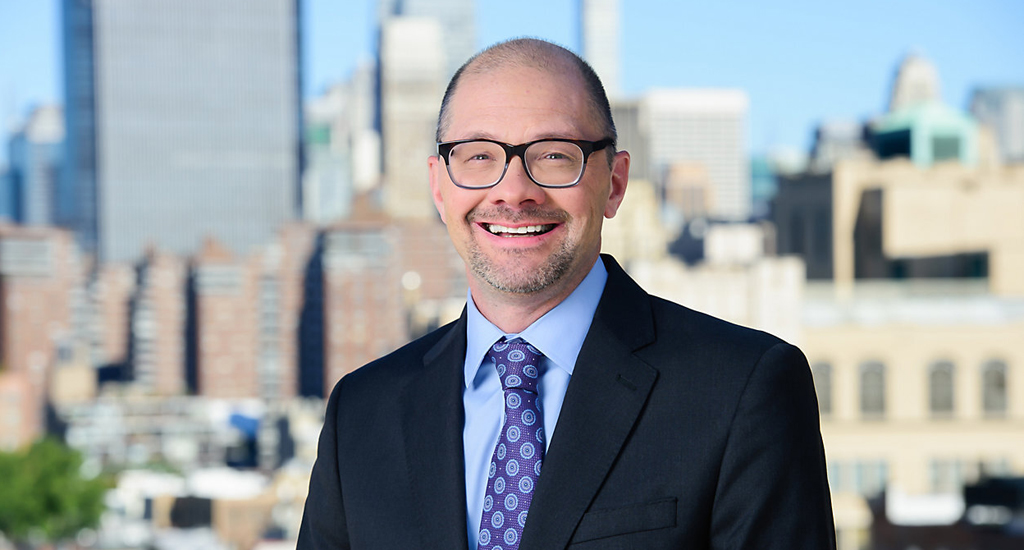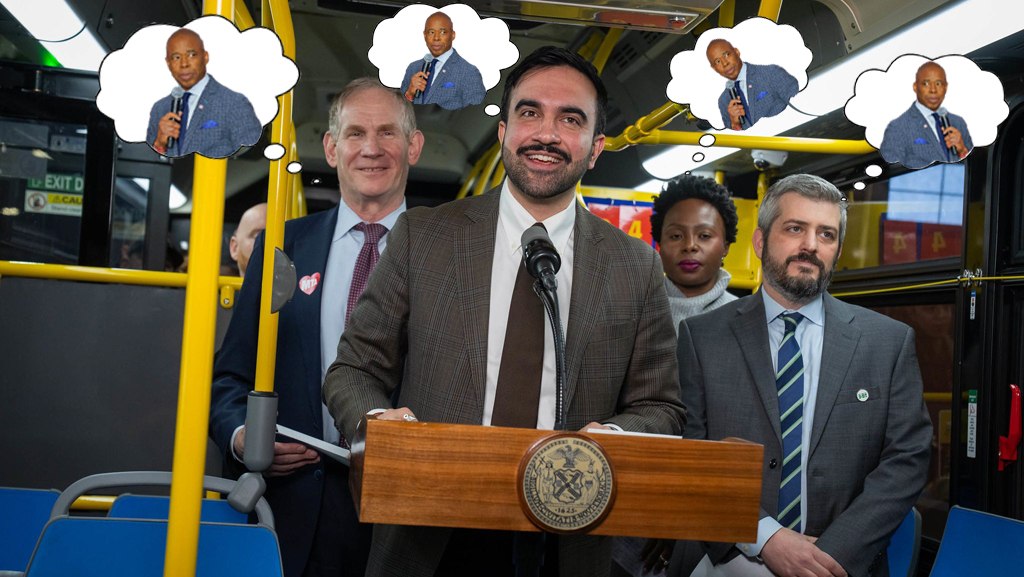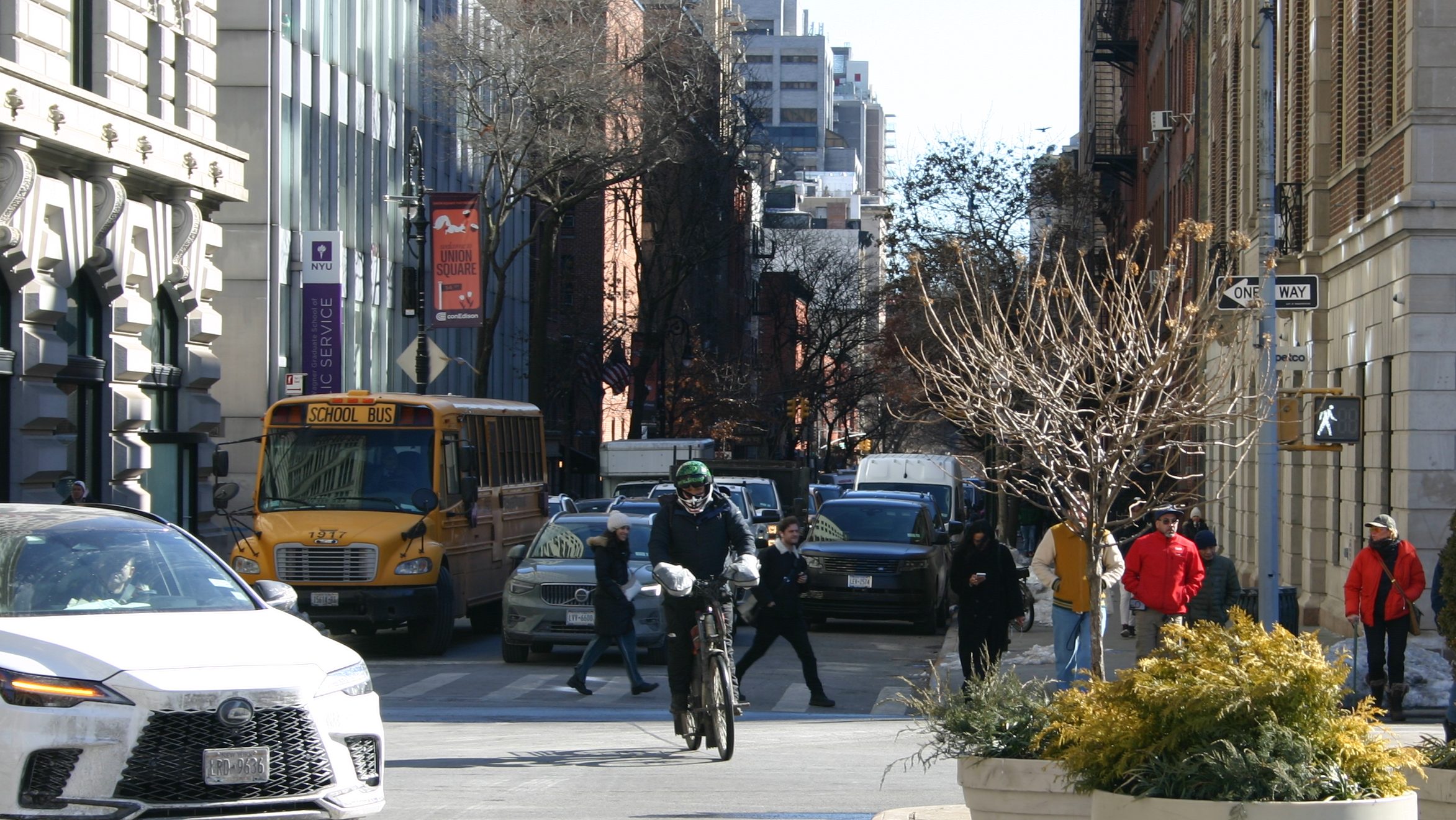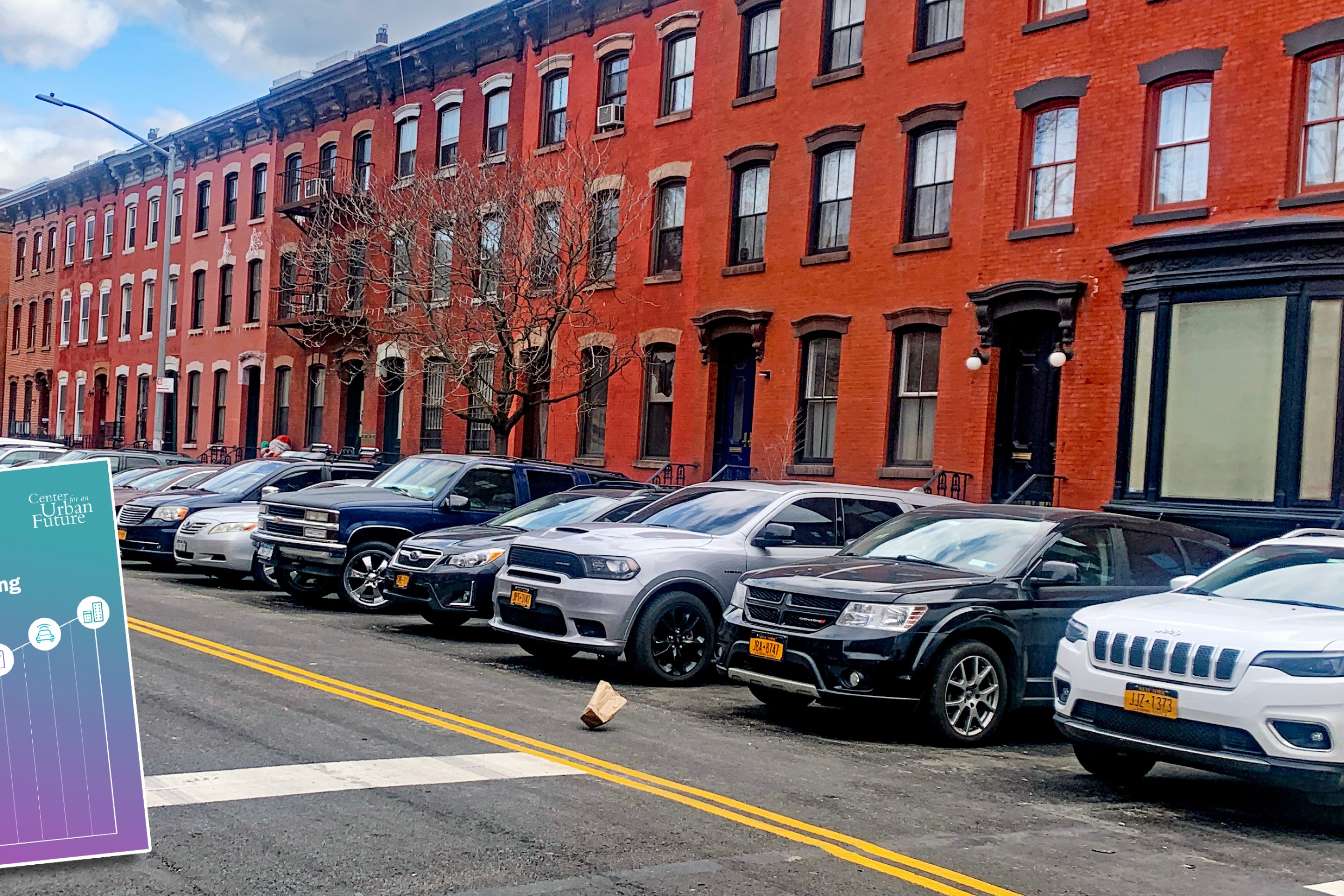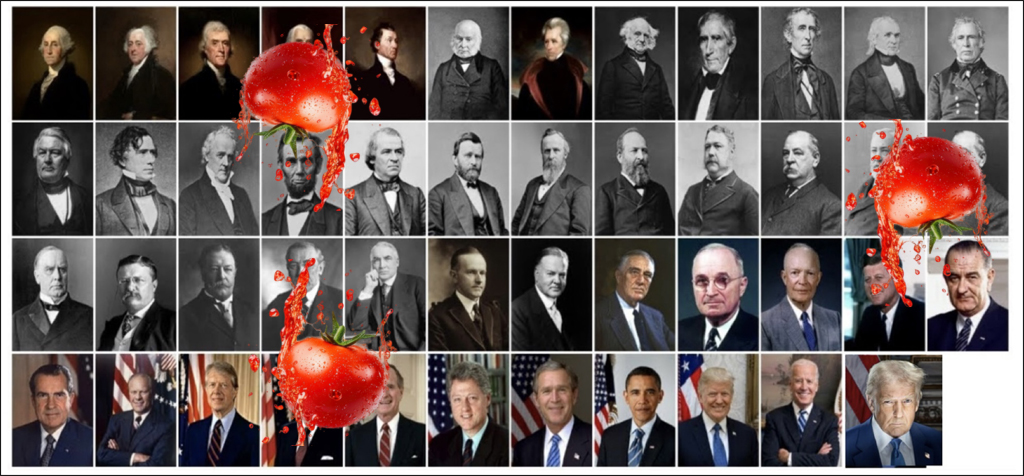On Wednesday, the city experienced its latest air-quality alert, the result of ground-level ozone that comes mostly from car exhaust. That followed the extreme flooding in upstate New York and Vermont, which itself followed several weeks of unhealthy air from wildfire smoke from Canada.
It was time to call up NY1 Meteorologist John Davitt — who seems to be the sole weather reporter in town willing to tell his viewers not only the what of the weather, but the why.
And he dares to do what no mayor has done before — urge against driving on particularly hot or poor air quality days.
Health alert for NYC. High levels of air pollution are making for unhealthy air quality today. Reducing your use of cars will help reduce pollution & help everyone. Not from the fireworks or Canadian wildfires. It's from stagnant air, power plants and automobiles pic.twitter.com/XvgnK9tlZH
— John Davitt (@johndavittontv) July 6, 2023
“Health alert for NYC. High levels of air pollution are making for unhealthy air quality today. Reducing your use of cars will help reduce pollution and help everyone. Not from the fireworks or Canadian wildfires. It's from stagnant air, power plants and automobiles,” Davitt wrote on Twitter on July 6.
Davitt lives in New Jersey and typically commutes to the city by car, often needing to be at his desk by 4 am. But when in the city, he strictly relies on the subway or his feet.
Here’s what Davitt had to say:
Julianne Cuba: As a New Jersey commuter, what are your thoughts on congestion pricing?
John Davitt: If they don't make a million exceptions, it's got potential to really reduce traffic. I do see congestion pricing impacting parts of society more than others. I think it might change my commuting habits actually. Depending on what the price is, I think it could change my behavior for sure.
JC: I’ve noticed you tweeting a lot more about the relationship between car usage and pollution, did that start recently and what prompted that?
J: It’s definitely been an evolution. In the last five years, making that obvious connection between ‘Hey, outside is poor air quality, that's unhealthy for most people and by changing individuals’ behavior, we can impact that.’ I think that's something that's really, as climate has become a bigger story and a bigger obvious thing that’s going on on our planet, being a meteorologist, making that connection between people and pollution has been more clear in the last five years.
I remember the first half of my career, we would just say ‘Hey air quality alert tomorrow, make sure you don't do that after work jog. But that's where it ended. Now, part of that message is, ‘Driving causes pollution, if you drive less, pollution will be better. You're gonna help yourself and everybody else.’
JC: Do you wish the city would similarly make the connection between the two, and advise against unnecessary car usage on unhealthy air quality days?
JD: I think there's a lot of mixed messages in government. Yesterday was a great example. We had the city announcing bad air quality for today, and then within minutes, also saying ‘Hey guess what, alternate side parking is in effect tomorrow.’ So what message are we sending? One part of the government mouthpiece is saying, ‘Tomorrow will be bad air quality, be ready for it.’ But then the other one is, ‘Hey you need to go move your car tomorrow.’ I know the smoke was something we hadn't seen before but it's something we’ll see in the future. I really wonder, if we get something similar to that in the future, do we say, ‘Hey, today there's no cars between the hours of 3 pm and 11 pm, when pollution typically peaks’? I know other cities in other countries definitely have days where, if the air quality is high, they restrict driving.
I know the MTA has no money but in an extreme, perfect world, do we get to the point where we say, ‘Hey the air quality forecast will be really bad tomorrow, we're suspending all non-essential automobile travel and by the way, buses and subways are free tomorrow.' Is that something we can do in the future? I think we need to really go all in. I think we're starting to make small steps. I think we need to think bigger.
JC: With more extreme weather events inflicting the city, do you think our leaders should take a harder look at how their decisions contribute to climate change and the production of pollution, such as by backtracking on transit improvement projects like bus lanes on Fordham Road or bike lanes on McGuinness Boulevard, and instead, be doing more to get people out of cars and onto transit?
JD: I think we see it across all levels of government. We have one foot in each lane. Even with the Biden administration. On one foot, they're talking about climate change and the other foot they’re approving new oil drilling. When we see the health impacts and storm impacts, it’s here and it’s happening. We need to stop waiting to see what's gonna happen and take some action.
JC: Earlier this week, the mayor defended his administration's response to the wildfire smoke last month, saying he was basically powerless to stop it. “What should we have done? Put out the fires?” Adams said on Fox5 NY. Obviously no one was asking him to travel up to Canada to fight the fires himself, but were there things he could have done here at home to limit additional pollution in the city during that time?
JD: I think in the last decade — and it especially intensified during the Covid crisis, but even before that — normal, everyday people have really looked to the government to be a voice of what we should be doing and listening to. Even during winter storms, the city will have storm pressers: ‘We will have this many salters ready, you should stay off the road at these times. The city will suspend school, that kind of thing.’ Government is a leadership position, if you're a leader you really need to be that voice that people are gonna listen to because they wanna know what's going on. That was an upsetting day — even the night before, when you could smell smoke in Midtown. In moments of crisis we look to our leaders and in that case, I think people were expecting more. It was something we hadn't seen before, so it's understandable that our leaders didn’t get it perfect that time around. But we're gonna have to make sure that we are ready and that includes leadership at all levels of government being ready with information, because people are gonna want to know it — and an action plan.
JC: Do you think the city's car culture is hurting us? What more could we be doing?
JD: That’s an easy one. Yeah, car culture produces pollution. Pollution hurts humans. By reinforcing car culture we are committing ourselves to further worsening air pollution and worse health effects. That’s the health end of it. The other end is, we know carbon dioxide is produced by burning fossil fuels, that's what happens when we use our non-electric cars. And that goes into our atmosphere and makes our planet warmer and causes more extreme weather. So yes, car culture is hurting our health, and hurting our climate.
We built the bike lanes, and I don’t know what the exact stats are, but just as somebody who has worked in New York City for three decades now, biking is way, way, way more huge now than it ever was. And this isn't like San Diego where the weather is nice everyday. There are challenges, there are hot days, wet days, snowy days, and people bike. And if you build that infrastructure, I think the biking community and the community of New York City has shown that they're gonna be more bike friendly — the more people are gonna use it. I think that’s been a real success and if we continue to expand it. Two wheels are better than four wheels, for sure, when it comes to our climate and our health.
This conversation has been condensed and edited for clarity.
